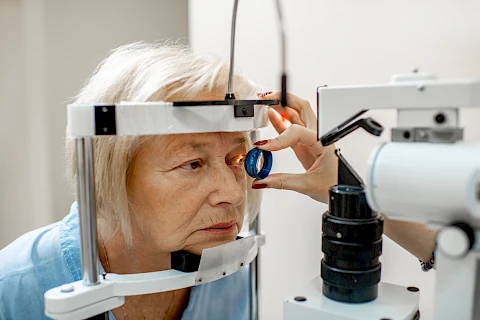
Diabetic retinopathy is a condition that affects many seniors. It's caused by damage to the blood vessels in the retina due to high blood sugar levels. Understanding the stages of this condition is vital for early detection and treatment. With awareness, seniors can take steps to protect their vision and maintain quality of life.
What Is Diabetic Retinopathy?
Diabetic retinopathy occurs when high blood sugar damages tiny blood vessels in the retina, the light-sensitive tissue in the back of the eye. Over time, this can cause vision problems for seniors already dealing with other health issues. People with diabetes must be aware of how this condition can impact their eyesight.
Stages of Diabetic Retinopathy
There are four stages of diabetic retinopathy, each with different symptoms and risks. Let's explore them one by one.
- Mild Nonproliferative Retinopathy: This is the earliest stage, where tiny blood vessels in the retina may swell. There might be no noticeable symptoms at this point, making it even more crucial to have regular eye exams. Monitoring is part of tracking any changes.
- Moderate Nonproliferative Retinopathy: As the condition progresses to this stage, blood vessels that nourish the retina can become blocked. Some vision changes might occur, though they could be subtle. You need to keep monitoring and maintaining healthy blood sugar levels to prevent further damage.
- Severe Nonproliferative Retinopathy: In this stage, more blood vessels become blocked, depriving the retina of its vital blood supply. This significantly increases the risk of vision loss. Recognize signs like increased floaters, which can indicate progression to this stage. You need to discuss any changes with your eye care professional.
- Proliferative Diabetic Retinopathy: This is the most advanced stage, where new, fragile blood vessels grow in the retina. They can bleed into the eye, causing severe vision problems or even blindness. Treatment urgency is highest at this stage, and immediate action is needed to preserve sight.
Regular Eye Exams
Regular eye exams are necessary for detecting diabetic retinopathy early. For seniors, it's recommended to have a comprehensive eye exam at least once a year. More frequent exams might be necessary if you have diabetes or notice vision changes. These exams can help catch changes before they become serious.
Working With Eye Care Professionals
Collaborating with eye care professionals is necessary in managing diabetic retinopathy. They can help develop a personalized management plan tailored to your needs. Treatment options include laser surgery or injections, along with lifestyle adjustments such as better blood sugar control and quitting smoking. Having a health professional guide you through these options ensures you get the best possible care.
Vision Care Starts With Knowledge
Taking control of eye health begins with understanding how diabetic retinopathy develops. Seniors who stay informed about their condition can work with their doctors to monitor their eyes and act immediately. Prioritize regular eye checkups and early interventions to safeguard your vision and quality of life.
If you or a loved one needs support in managing diabetic retinopathy or other senior health needs, contact Senior Helpers Irving. We're here to support seniors in Irving, Dallas, and Grand Prairie every step of the way.